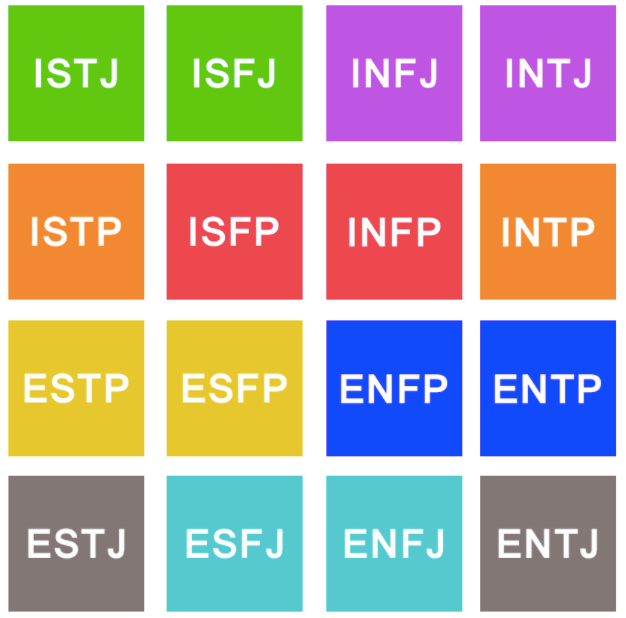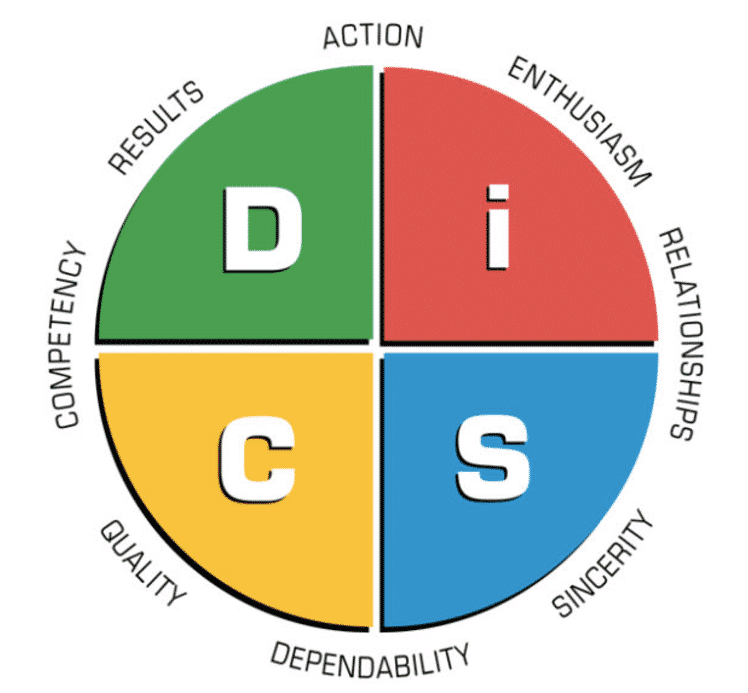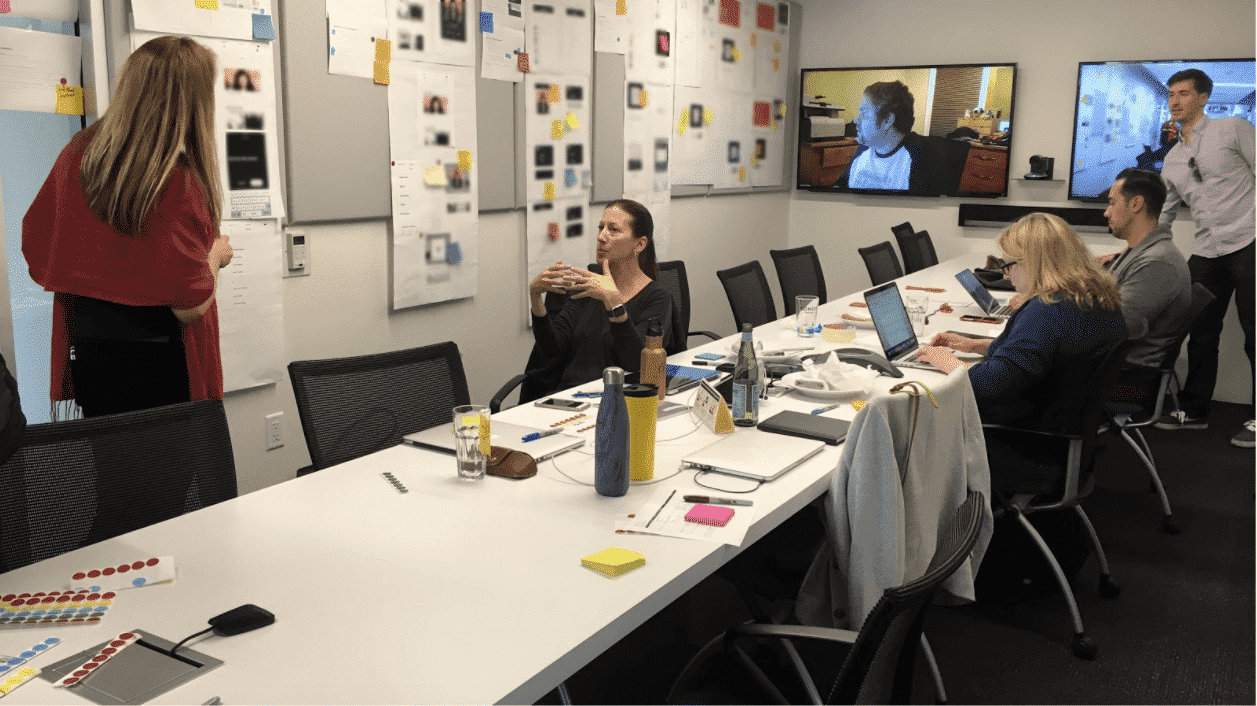A cornerstone of being a successful product manager is effective communication. Given the number of individuals, teams, and stakeholders a product manager interfaces with on a regular basis, mastering communication skills is something we should all be working on continuously. In my experience working with start-ups for the past 20 years, I’ve witnessed a lot of variance in the degree to which companies encourage employees to reflect on their strengths and weaknesses in order to identify how they can improve themselves. Often, these efforts center on communication.
Tweet This:
“A cornerstone of being a successful product manager is effective communication, and understanding personality types can help.”
There are many ways to do this and, if you’re fortunate, your company has some process in place to help you. If you’d like to take things into your own hands, however, I recommend trying one of the following online assessment tools, which can help you uncover blind spots and strengths you may not even be aware of.
There are many different assessment tools out there, each with its own framework and methodology.
Myers-Briggs

Myers-Briggs Type Inventory (MBTI) is one of the most popular personality frameworks, having been used since 1943. This framework is based on four dichotomies: whether you’re extroverted or introverted, whether you rely primarily on sensing or intuition, whether you’re a “thinker” or a “feeler,” and whether you rely more on judgment or perception. The results are boiled down to one of 16 personality types, such as ISTJ or ENFP. My test results indicate I’m an ENTJ, which means I’m matter-of-fact, decisive, and quick to make decisions. ENTJs also excel at helping people get things done with a focus on getting results in the most efficient way possible. Sounds like a product manager, right? So do many other MBTI types.
ISTJ’s, for example, tend to be serious and earn success by thoroughness and dependability. Practical, matter-of-fact, realistic, and responsible, this also sounds like a product manager. If someone on your team is an ISTJ, she may not thrive in a chaotic, all-day brainstorming session. You may want to think of some alternative ways to solicit their input, such as having everyone write their ideas on post-it notes instead of saying them out loud. There is no right or wrong personality type. The key is to find your type and take advantage of the strengths you have.
StrengthsFinder

Speaking of strengths, StrengthsFinder is another popular assessment tool. As the name implies, this test is all about finding your top strengths so you can better take advantage of them. The methodology is based on understanding which of the 34 “talent themes” best represents your strengths. My top 5 strengths are Achiever, Activator, Positivity, Futuristic, and Learner. If you didn’t know me, but read the results from the StrengthsFinder test, you probably wouldn’t be surprised to find out I’m a software product manager. Another product manager I know is a Maximizer, Strategic, Learner, Individualization, and Arranger. Sounds like a great combination for a product manager! In this case, I might ask this product manager to take the lead on conducting data analysis along with presenting it to the organization since the Arranger trait makes him well-suited to identifying patterns and trends and perceiving how things fit together.
DISC

DISC is another framework I recently discovered which appeals to me because of its simplicity. It’s based on answering a set of 12 quick questions about how you respond to challenges, how you influence others, and how you respond to rules and procedures. I also like how it can easily be applied to understanding what makes other people tick without already knowing whether they’re an ESTP or an Activator. DISC is a quadrant behavioral model based on these 4 personality dimensions:
- Decisive (Ds): This type is best described as direct, strong-willed, and forceful. If you’re a fan of the Seinfeld TV show, Jerry would fall into this theme with his direct, skeptical, and impatient nature.
- Interactive (Is): If you’re sociable, talkative, and lively, you’re likely an I. Another I would be Jerry’s friend, Elaine.
- Stabilizing (Ss): Gentle, accommodating, and soft-hearted people are considered to be Ss, much like Kramer.
- Cautious (Cs): Questioning, analytical, and stubborn types enjoy accuracy and stability. Jerry’s best friend, George, certainly comes to mind when you think of the Cs.
Once you know what your DISC type is (mine is D), you can easily start applying the framework to those around you. Does this require some generalization and stereotyping? Perhaps. However, it’s human nature to make judgements about people as soon as we meet them. This is rooted in our animal instincts to judge friend from foe, threat from opportunity, etc. By leveraging these insights to better understand your colleagues, you’ll be able to better communicate with them and be more successful in your product career.
Take a moment now and think about someone on your team that you work closely with. Without giving it too much thought, which DISC type comes to mind? Once you get the hang of it, you can start using this in a more strategic fashion, such as tailoring your one-on-one meetings based on the DISC behaviors your colleague best represents. Grabbing coffee and having an informal chat would work well with an I style colleague. However, if you’re having an important meeting with an individual who is a C, then you need to prepare yourself by allowing enough time to go over the details with that person so that they can fully digest what you are presenting to them. You may even want to think about the types of questions he may ask you, since you know they tend to be questioning and analytical.
A practical and creative use of this framework is to apply it to how you present your product roadmap to stakeholders. I always try to meet 1:1 with my stakeholders to socialize my roadmaps, to give everyone a chance to ask questions and dig deeper into what the vision is and what is driving our priorities.
By tailoring these roadmap socializing sessions based on the DISC personality types, you’ll be able to much more effectively communicate product direction and build consensus. For example, you could choose different roadmap templates based on who you’re meeting with. If you’re meeting with someone who’s a D style (direct, fast-paced, impatient), you may want to share a streamlined version of your roadmap with a focus on results. If you’re meeting with a C style (think of George), come prepared with a more detailed roadmap with back-up slides to address their need for understanding the analysis behind the roadmap.

Tailoring your roadmap presentations to your audience is a key to your success as a product manager. Better understanding your audience with the use of frameworks such as these can help you ensure your product has the best chance of being successful.
Have you used other personality assessment tools? Please share them in the comments below.



